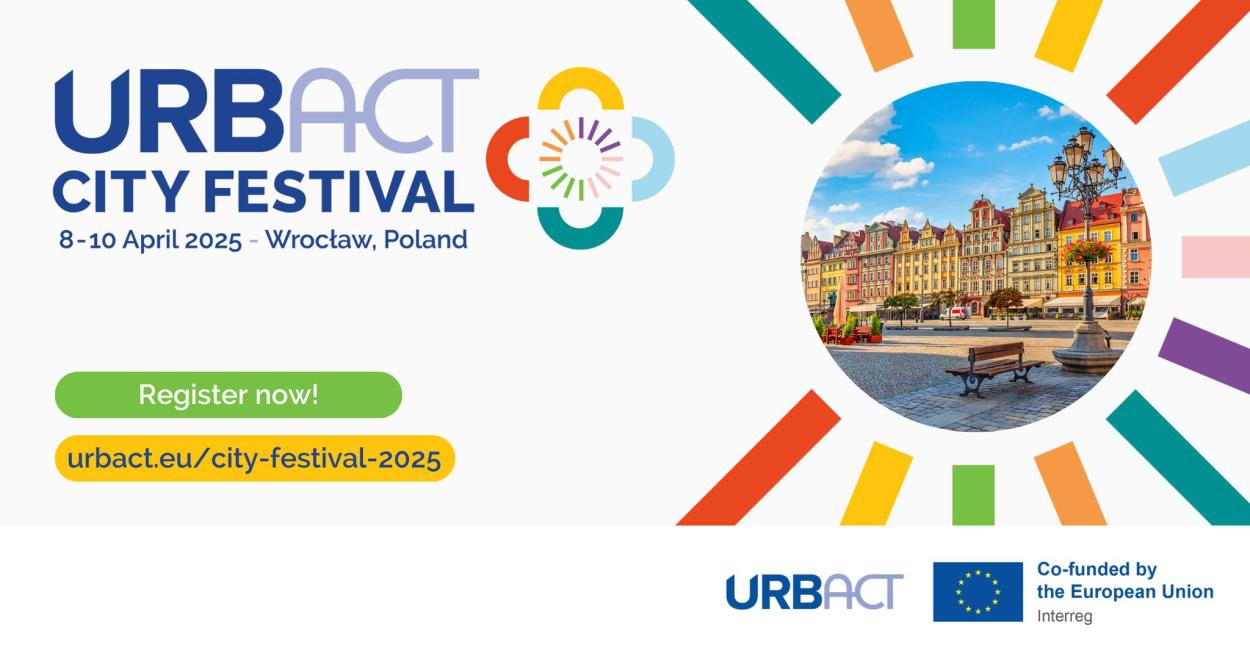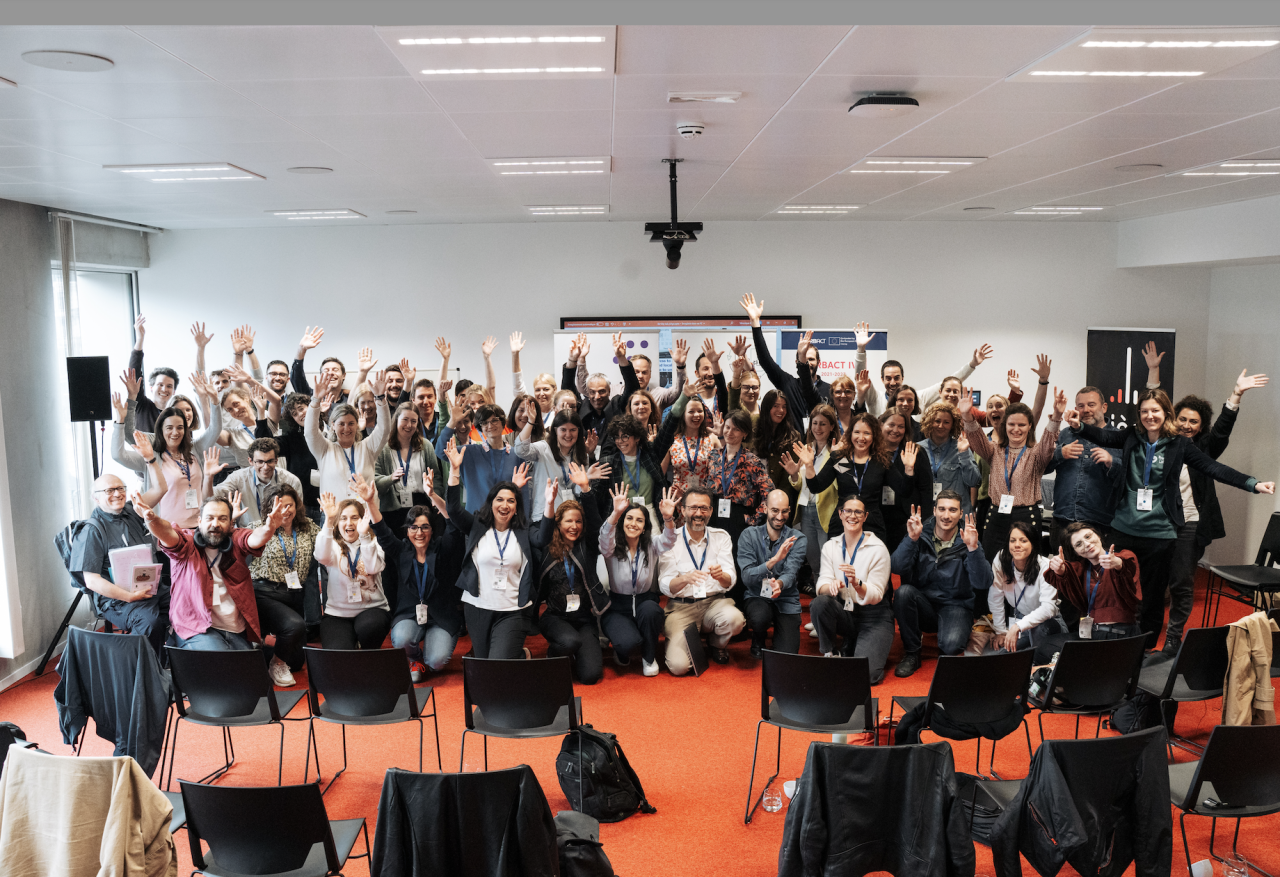This year URBACT reached new cities, practices and expert-led insights in key thematic areas. URBACT solidified its partnerships with other EU initiatives and programmes and made sure city voices were considered in EU and regional policy discussions.
To round out 2024, let’s learn more about these achievements from the people involved…in their own words!
Two calls inspire new Networks and Good Practices
In the first half of 2024, URBACT ran two open calls – one to create partnerships for transferring innovative actions and one to identify integrated, participatory and impactful practices in European cities.
After an exhaustive evaluation process, 10 Innovation Transfer Networks, comprising 61 partners from 19 countries, kicked off in September. They have partnered up to adapt and re-use completed Urban Innovative Actions projects in urban poverty, urban security, culture and cultural heritage, and other areas.
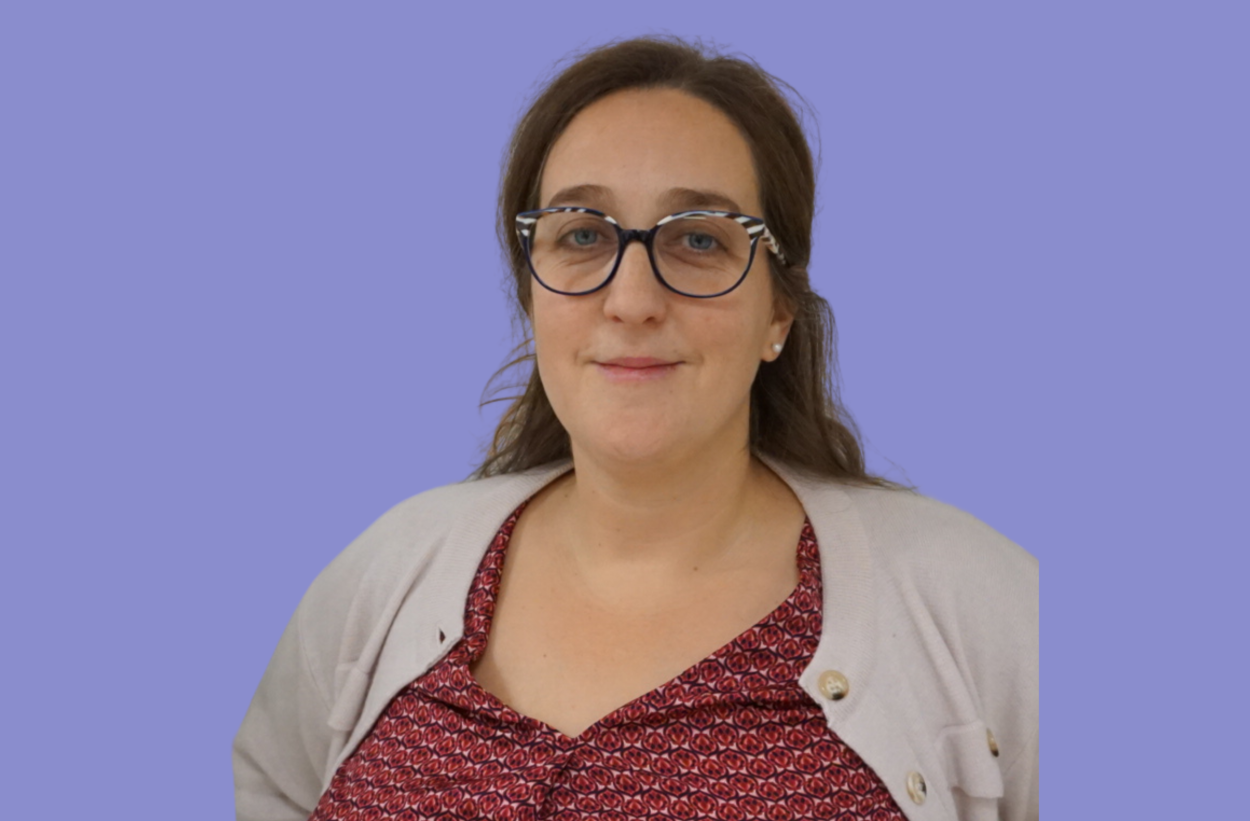 | Clémentine Gravier, Head of Unit, Networks and Capacity Building. "One of the highlights of 2024 for me was the kick-off meeting of Innovation Transfer Networks. The dynamic was great! I was very pleased to see all partners gathered together in Paris, getting to know each other and starting to build an always bigger URBACT community."
|
In October, URBACT announced the results of the Call for Good Practices. Narrowing down from 249 applicants, 116 integrated, participatory, impactful practices are ready to be transferred to hundreds of European cities through Transfer Networks from 2025 onwards.
More updates on the work of the Innovation Transfer Networks and the Good Practice awardees will come in 2025. Visit the URBACT website to stay tuned and get involved.

| Jenny Koutsomarkou, Head of Unit, Knowledge and Communication. "One of my highlights has definitely been the very moment our URBACT Monitoring Committee unanimously approved the URBACT Good Practices on 29 October. I was so happy and excited! Now we have 116 new practices ready to be transferred to hundreds of European cities through Transfer Networks from 2025 onwards. What a joy it is to see our work take shape for something bigger, the collaboration of cities for more sustainable urban futures." |
Four seasons of EU City Labs
URBACT and the European Urban Initiative stayed busy with four EU City Labs in 2024. This year's Labs focused on two critical themes: local food systems and the energy transition.
Mouans-Sartoux (FR) hosted the first event of the year on changing food habits. This was followed by Liège (BE), exploring the potential of public procurement for accessible and sustainable food systems in cities. Milan (IT) approached the event from a different angle: sustainable land-use strategies. The final EU City Lab of 2024 was in Bucharest (RO), one of the newly selected 116 URBACT Good Practices, focusing on the available funding mechanisms and tools for energy transition in cities.
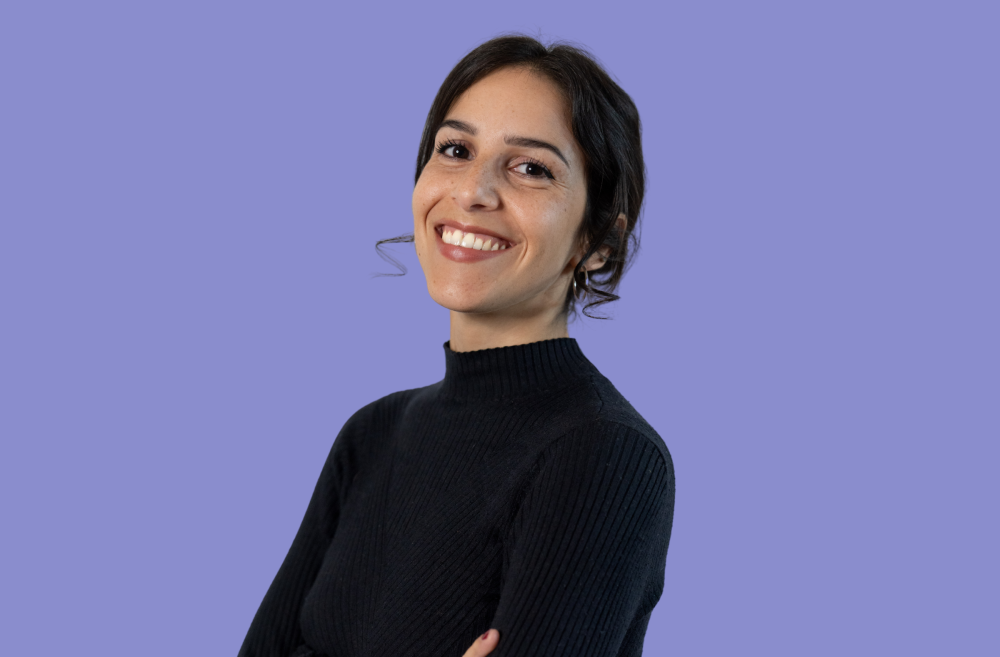
| Camilla Chiappini, Communication and Knowledge Officer. "My highlight of 2024 has to be the EU City Labs! This year's Labs brought together diverse stakeholders to build more resilient communities, but most importantly, they created human connections and shared experiences that I and the entire URBACT community will always cherish." |
Check out five transversal lessons learnt about integrated sustainable food systems and key takeaways for financing the energy transition in your city. Stay updated on the next EU City Labs here.
Study visit at the EU City Lab on Funding the Energy Transition in Bucharest. Credits: URBACT.
Food procurement tutorials put expertise into practice
URBACT launched a series of video tutorials on strategic food procurement, capitalising on previous URBACT work on public procurement and discussions during the EU City Labs. The five-part series walk cities through the cycle of procurement, sharing tips and checklists for making strategic decisions related to procurement. The tutorials are also complemented by three case studies (Liège, Brussels Capital Region and Milan).
Brush up on the public procurement video tutorials and related themes via URBACT’s Food Knowledge Hub.
Action Planning Networks enroll in URBACT Campus 2024
Building on the legacy of URBACT University, a series of national campus events were developed to support the cities involved in the 30 Action Planning Networks. URBACT Campus focused on how to design and implement integrated action plans and facilitated the identification of suitable funding resources for the integrated action plans.
As of December, 18 URBACT Campus events have taken place, gathering more than 350 network partners from 28 countries.

| Maria Laura Mitra, Project Officer, Networks & Capacity-Building Unit. "My highlight was travelling around 18 countries over the past 8 weeks, gathering over 350 city representatives! I'm extremely inspired by the cities that got together to refine their Integrated Action Plans and make sure that their plans are thorough and robust to grow into tangible realities." |
Each Action Planning Network has a dedicated website, where you can learn more about their cross-cutting approaches to a range of local urban challenges. You can also search for other URBACT Networks.
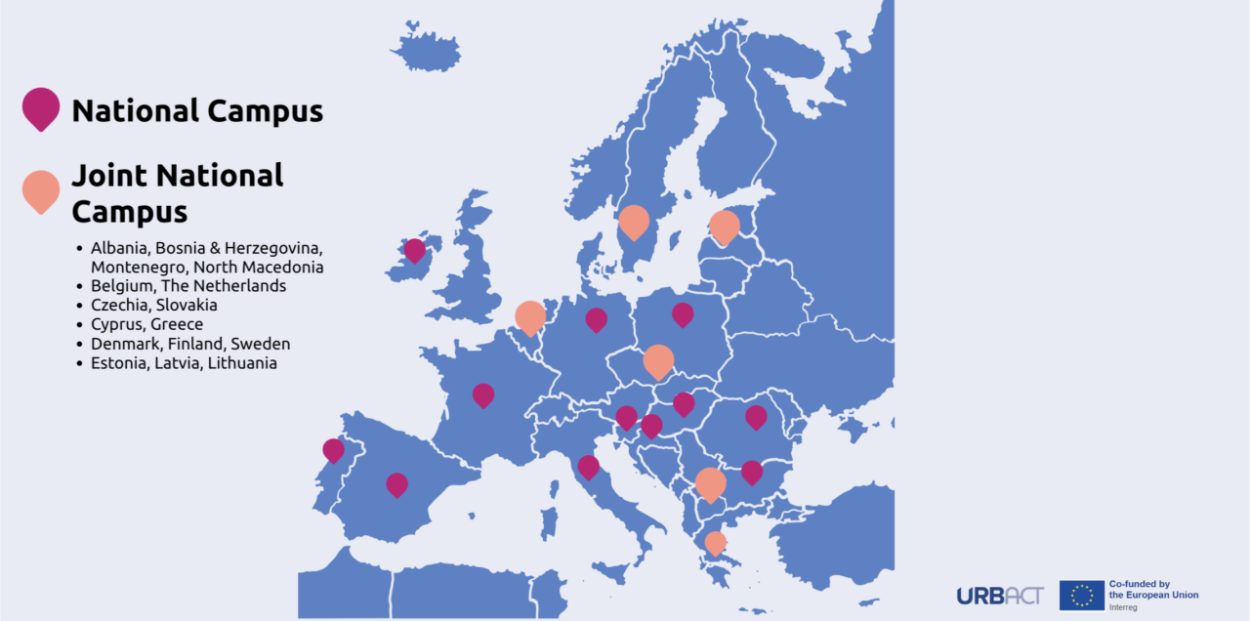
Western Balkans cities on the way to becoming pioneers
In 2024, URBACT welcomed cities from countries benefitting from the Instrument for Pre-Accession Assistance (IPA) (specifically, Albania, Bosnia and Herzegovina, Montenegro, North Macedonia, Serbia). At this time, 20 cities from IPA countries are involved in ongoing URBACT Networks.
In November, URBACT announced a bespoke learning programme for cities in the Western Balkans. The URBACT Pioneers Accelerator programme will invite around 20 cities on an 18-month journey to develop tools and approaches for piloting sustainable solutions for specific urban challenges in the Western Balkans.
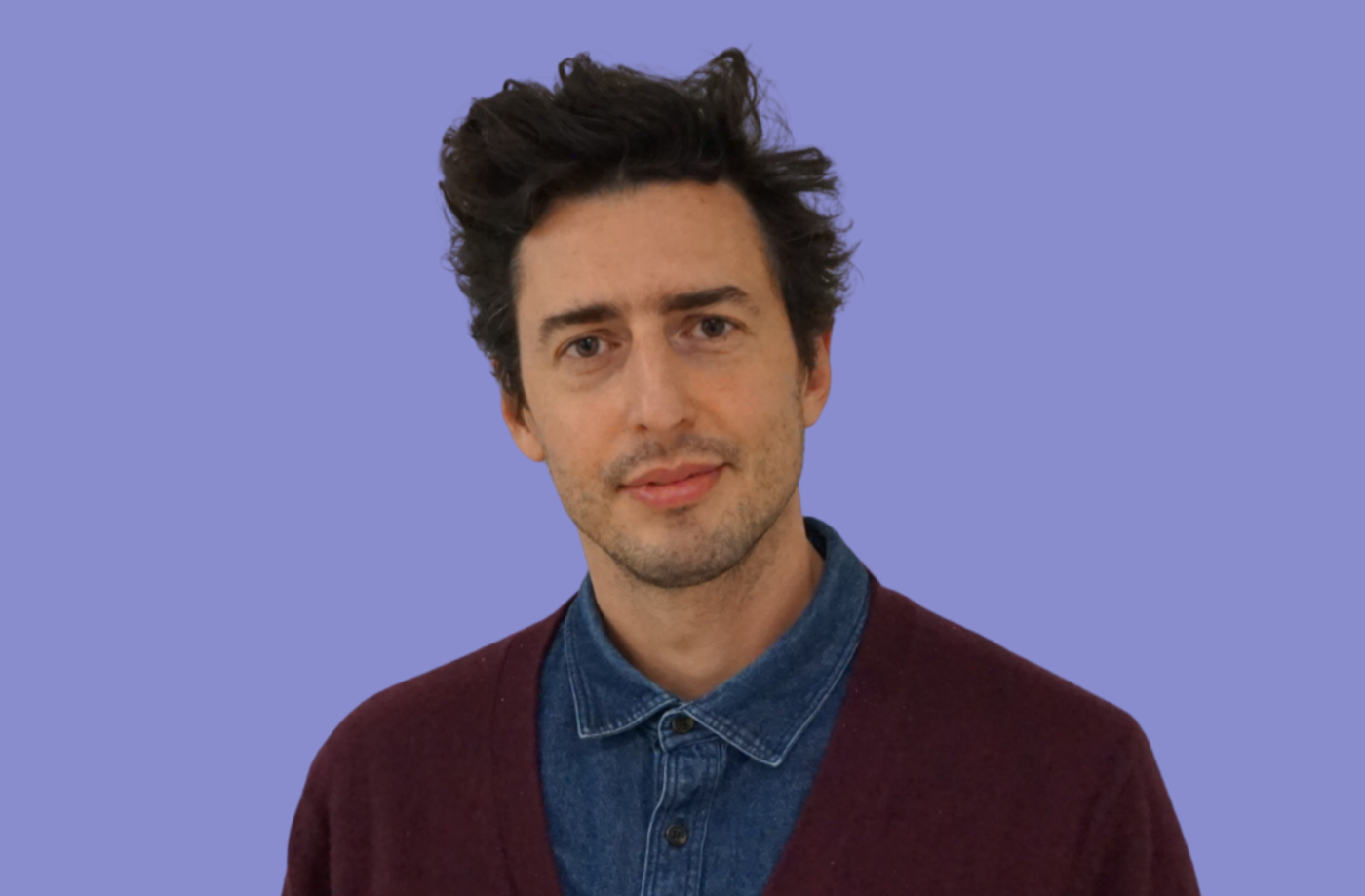
| Kristijan Radočić, Strategic Programme Development Lead Officer. "My greatest highlight in 2024 was the development of a bespoke learning programme for cities in the Western Balkans demonstrating the added value of European cooperation. Despite the complicated political and socio-economic challenges this region is facing, it has great potential. I am confident that our investment in people managing the sustainability transition in these cities will help them become an inspiration for others." |
The Pioneer Accelerator programme currently receiving applications through 22 January.
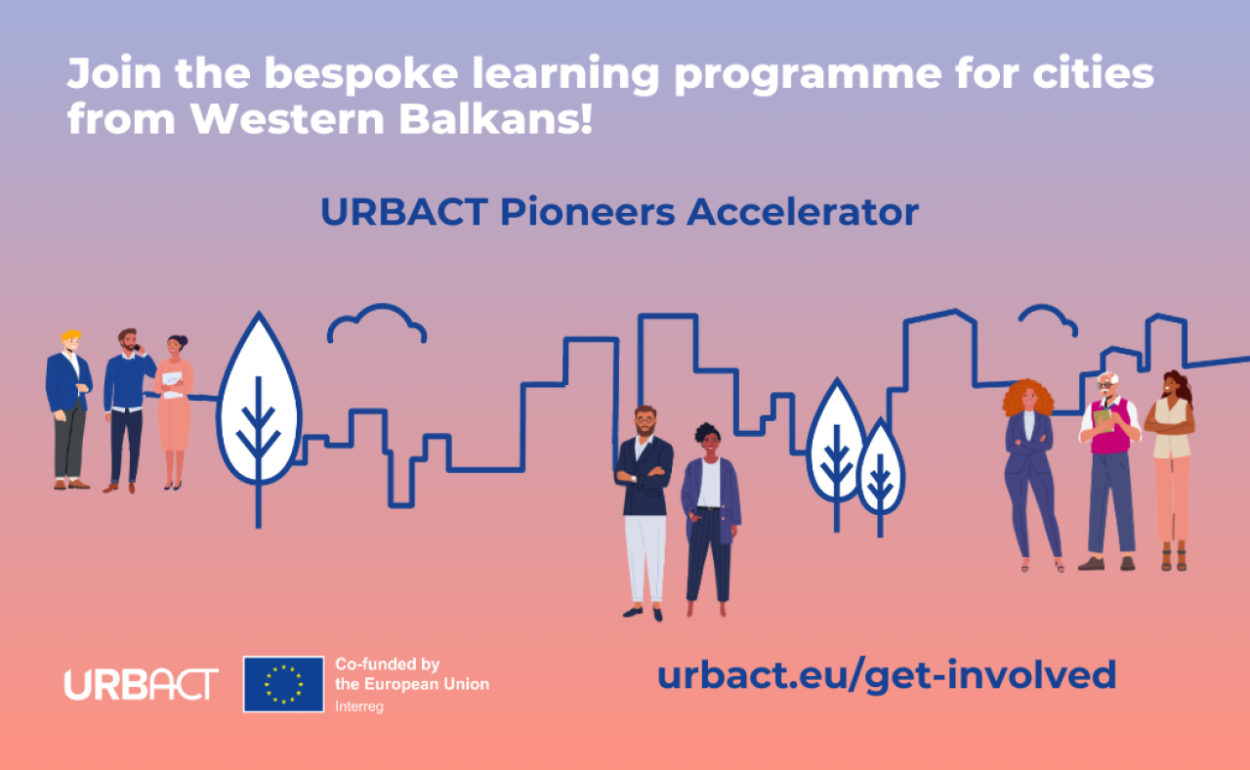
URBACT get shoutout in the 2024 INTERREG stakeholder consultation
From March to June, URBACT joined the INTERREG consultation on the future Cohesion policy (post-2027) by conducting a programme-wide survey on cities’ sustainable urban development needs.
A few responses stood out; for instance, citizen empowerment and stakeholder cooperation were identified as an added value of URBACT. The capacity of cities to enhance citizens' participation and co-creation skills, to empower women and youth and to develop and engage URBACT Local Groups were also seen as preconditions for sustainable urban development.
During consultation workshops, URBACT also took the chance to hear from young people about the ‘city of their dreams’.
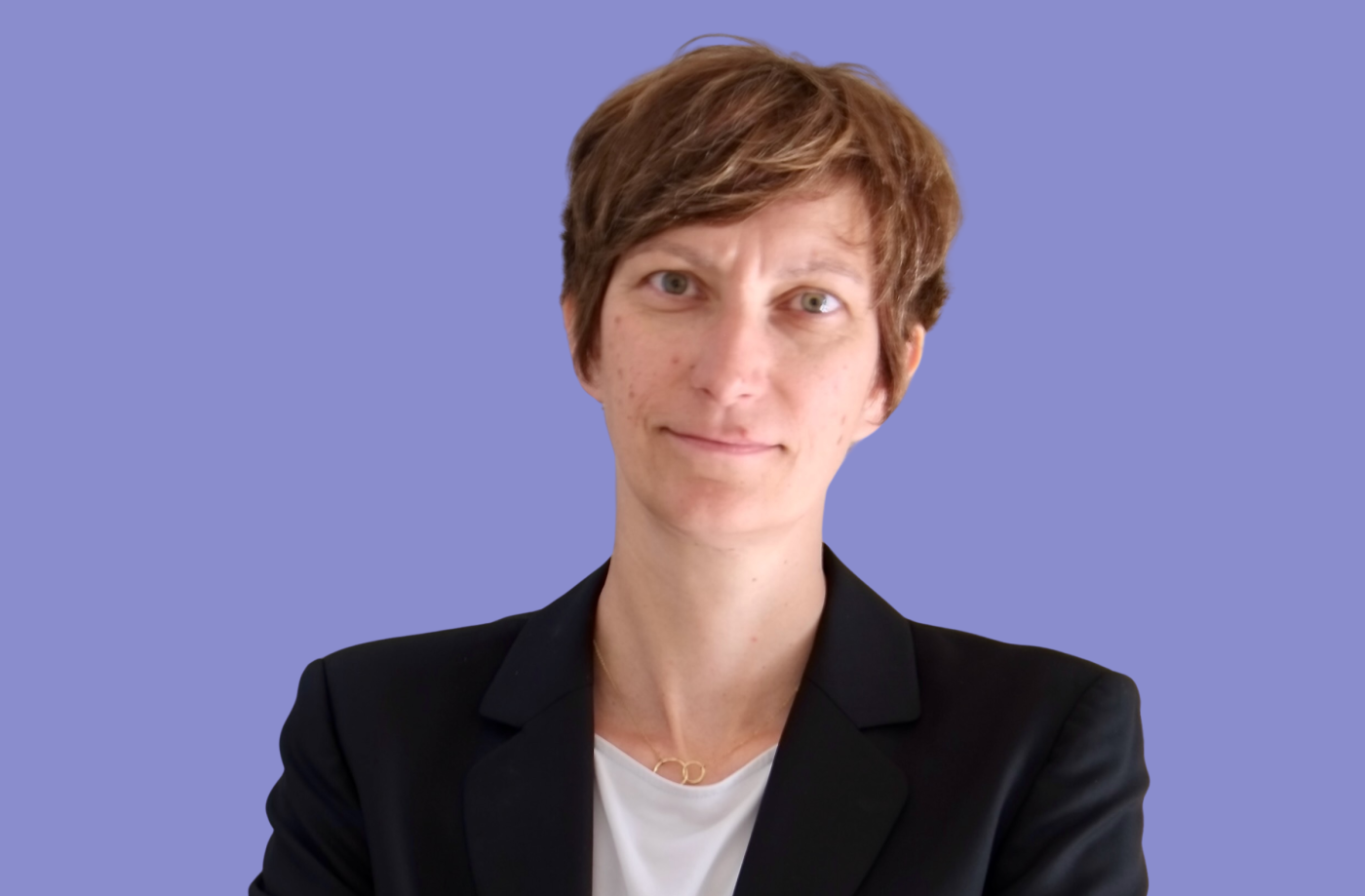
| Margit Tuennemann, Senior Policy Officer. "My personal highlight was the URBACT consultation on the future INTERREG and Cohesion policy. From Bucharest to Barcelona, Estonia to Slovenia, we managed to mobilise over 500 people to share their views about the future of urban cooperation." |
Read URBACT’s full harvesting report for the main findings and recommendations presented to the URBACT Monitoring Committee and the European Commission.
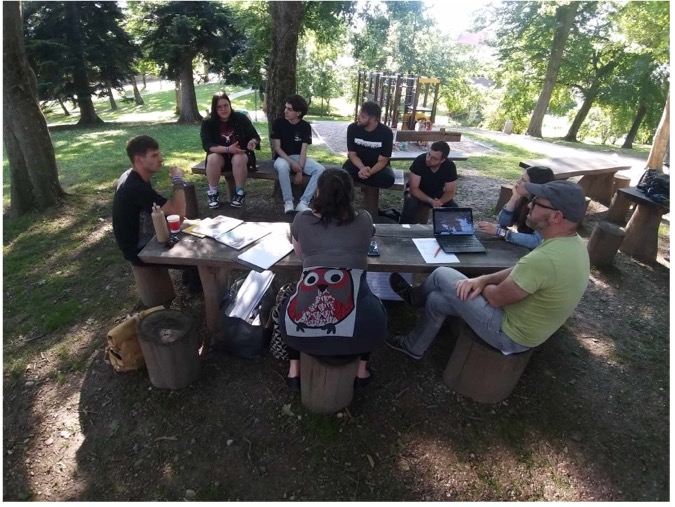
Looking to 2025: URBACT is putting Good Practices into play
With a new year comes new resolutions and practices. URBACT is taking this literally, making 2025 the year of Good Practices.
Start your year off right at the URBACT City Festival in Wrocław (PL) on 8-10 April, where the 116 newly awarded practices will take the stage. Register now and find out what else is in store.
The URBACT City Festival will also launch the next call for Transfer Networks that will be open until June 2025. Some of the URBACT Good Practices will be transferred to other European cities thanks to these new networks from October 2025 to end of 2027.

| Teofil Gherca, URBACT Programme Director. "In 2025 we will welcome 25 new URBACT Networks and diversity even further our capacity-building and knowledge-sharing activities. Additional measures will also be taken to simplify and facilitate cooperation among beneficiaries and partners." |
Keep an eye on the URBACT Toolbox. New tools will be unveiled, including an energy funding tool to help cities submit successful proposals at local, regional and EU levels.
There will also be many opportunities for capacity building and knowledge exchange.
Following the consultation process, URBACT looks forward to contributing to ongoing debates and works related to the future of EU Cohesion Policy, especially on the role of cities and benefits of European Territorial Cooperation.
